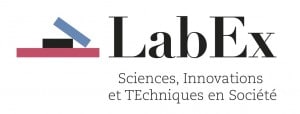Abstract
In the digital age, poor public communication catalyzes the spread of disinformation within public opinion. Anyone can produce political content that can reach a global audience, and social media has become a vital tool for political leaders to convey messages to the electorate. The 2022 Italian election campaign has seen the term “nuclear” debated with two different declinations: on the one hand, regarding nuclear energy for civilian use, and on the other hand, regarding the fear of an escalation of the conflict in Ukraine and the use of atomic weapons. This research aims to analyze the social media debate by exploring multiplatform dynamics to qualitatively identify and analyze the connections between social media platforms that we have termed Bridges, a concept drawn from Transmedia Theory to describe the narrative relationship between platforms. The methodological approach will follow an explanatory sequential design that will rely on digital methods to identify connections between platforms (bridges) and then apply an exploratory qualitative approach to enrich the data and capture the nuances of the debate. As expected, we found polarized positions and fragmentation on both issues of civilian nuclear energy and the atomic conflict narrative. Primary evidence shows bridges spreading affective, defective, and infective content across platforms in a multifaceted social media ecosystem. Affective refers to rhetoric that appeals to people’s feelings. Defective means the discussion that brings attention to hyper-partisan news channels, fake news, and misinformation. Infective means bridges with below-the-radar platforms, niche channels, or pseudo-information channels. They use bridges with mainstream platforms to gain the potential to go viral. The paper highlights the importance of cross-platform and interdisciplinary approaches to addressing disinformation in a media ecosystem where social media plays an increasing role in a country’s democratic dynamics.
See all documents refering Cortext Manager






